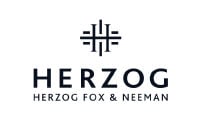

Vice president and general counsel | Alon Blue Square Israel






Aviram Gavish
Vice president and general counsel | Alon Blue Square Israel
Team size: Four
Looking forward, what technological advancements do you feel will impact the role of in-house legal teams in the future the most?
Artificial intelligence and other computerised tools for legal operations management will increase companies’ wallet share. As we all use email software, word processors and electronic tables as essential tools, the same will apply to the company secretary work. Legal entity management will also heavily lean on such devices, and part of it will be continuous improvement suggestions on corporate governance, required regulatory appointments, signatory rights and even simple public notifications. In addition, legal documentation management will also lay heavily on resembling tools. Once market standards are set, prices reduced, and stability attained, this will become the market norm, and even the most conservative general counsel will use it.
As per other aspects of the in-house legal work, more and more new technologies have become available. As they relate to more delicate work that requires professional and commercial considerations, it will take them more time to become the market norm.
What would you say are the unique qualities required to be successful as an in-house lawyer in your industry?
The demand for in-house lawyers has tremendously increased in the past two decades. From a small circle of employees in the government and blue-chip companies, the in-house lawyer became a necessity in nearly every mid-size company in advanced economies around the globe. The skillset of the successful in-house lawyer changed over time, from razor-sharp professionalism in his line of business to a full-fledged manager leading the organisation’s legal perspective. Legal-wide understanding and professionalism are the basic requirements. However, business leadership, commercial acumen and excellent human relations are mandatory nowadays. The in-house lawyer is expected to be involved in business strategy, solve problems, work in uncertainty and be a leading team player in the organisation’s progress.
In-house lawyers must educate themselves to become more and more legal managers. They should manage legal risks and be willing to take reasonable ones. They are expected to be proactive and strategic in their work. They should be tentative about leading bigger teams with added complexity and diverse
nationality. Most importantly, they should continue to learn and improve their skill set as time goes on. More general counsel becoming CEOs shows that the market views successful ones favourably.
What can law firms do to improve their service to the legal department?
Law firms should understand and closely monitor their clients’ needs, especially ones with in-house lawyers. They need to increase agility, deepen the use of technological tools and become more client-oriented businesses. They cannot make do with knowing the law per se. Other competitors have that and, usually, at the same professional level. They should be the navigators of their clients. It will be easier for them to succeed in that task if they understand the commercial environment in which their clients work. They need to know how they (and their clients) get the competitive edge and how they maintain it on a daily basis.